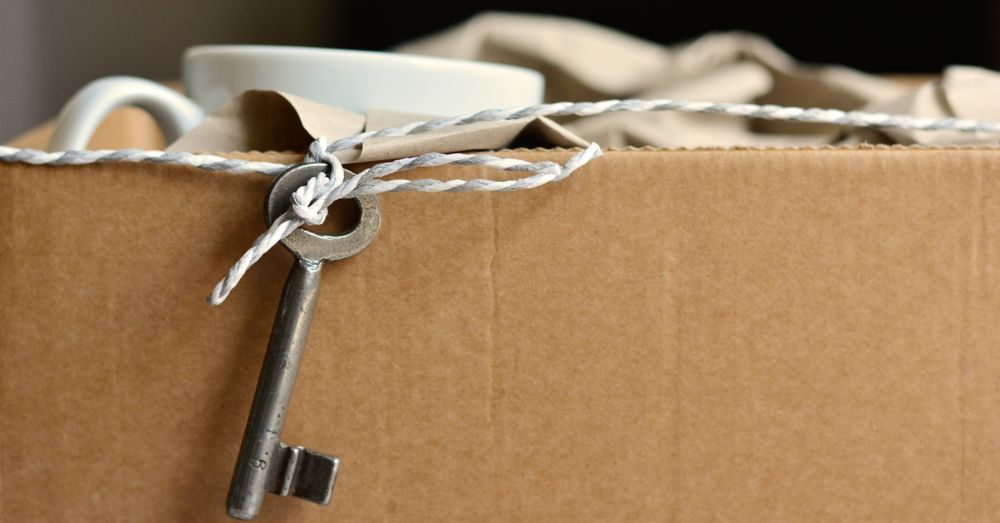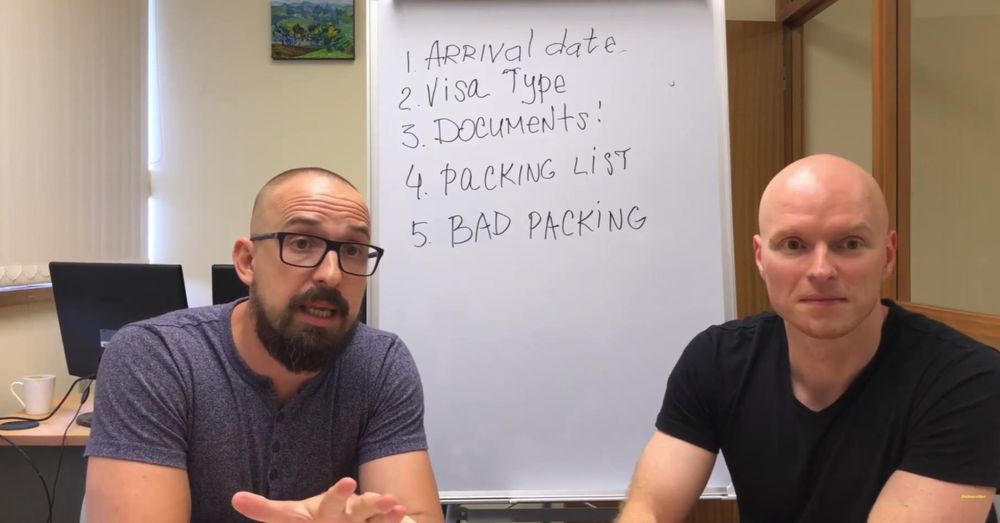
5 Expensive Mistakes When You Import Used Household Effects to NZ
7-minute read (19-minute watch)
Max: All these five mistakes apply whether you import a full container , air freight, or even 100 kilos by sea freight, and it’s very important to make sure that you prepare all these things before you arrive in New Zealand.
Make sure you do not arrive before your shipment arrives in New Zealand.
Watch full YouTube episode below
Mistake #1: You Arrive in New Zealand Later than Your Goods
Alex: When you arrive in New Zealand after your shipment, NZ customs will see it as a strange thing happening. You supposed to be moving to New Zealand, and your goods must accompany you or must arrive after you.
In this case, customs will say, “Hang on, we do not want the goods just to enter free of charge. We want to see some GST payment for it.”
Potentially, you either face the situation of keeping your goods in storage, uncleared, until you arrive in New Zealand or paying the GST on these goods and, which you don’t also want to do because it can be in hundreds and sometimes even thousands of dollars.
If you are coming to New Zealand and you want to import your goods in the country, do delay the goods until you are here.
Max: So how many days before the arrival?
Alex: You can arrive at the same. You can arrive one day before, that’s also fine because usually, it will take a few days till customs clear the goods.
Max: Is it only a few days, or a few weeks maybe?
Alex: It could be; if you’re talking about air freight, it could be a few days. If we’re talking about sea freight, some cases it takes up to two weeks.
If your customs entry goes into some deep department in customs and this department can be so busy.
Max: Especially if it arrives during holidays, right?
Alex: And that would be another expensive mistake you can do when importing the goods to New Zealand.
Max: To be safe, I would arrive maybe at least two weeks before your cargo arrives in New Zealand, because it takes time to complete the documents and in many cases, you’re gonna have mistakes on some paperwork, or you will be missing some paperwork.
Two weeks is normally enough, at least two weeks is enough for you to fix the documents, or you can hire a customs broker to complete the paperwork for you.

Mistake #2: Not Knowing Visa Requirements to Enjoy GST FREE Entry
Alex: Second mistake. People, when moving to New Zealand, people not always know what kind of visa they need to be on to import the goods free of GST.
In most cases, only visas which make you stay in New Zealand for a longer period of times, which like settlement visas, visas like work visas, or residence visas, these type of visas allow you to import the goods free of GST. When you are on a visitor visa or a student visa, by law, you are not allowed to bring your goods GST free.
You will have to pay GST; and before bringing, before packing any goods, think twice what exactly you want to import into the country because you will have to pay some money to customs.
Max: So what kind of visa do you have to have to import your goods duty-free ?
Alex: It could be work visa, but it has to be issued for longer than 12 months so that it could be residence visa, all types of residence visas; that’s pretty much it.
Max: The other thing is, if you want to import duty-free, you have to own the goods for at least, what, 12 months.
Mistake #3: You Lodge NZ Customs Paperwork Too Late
Alex: Yeah, people come to us one or two days before the goods arrive in New Zealand. In most, in 95% of the cases, it’s way too late to start the customs clearance.
What it means, if you come to us, if you come to any broker one or two days before arrival, it means that you will most probably have to pay some storage charges; because nowadays clearance of goods might take, as we said before, from two days to two weeks.
And, especially with sea freight, as soon as you pick up the container from the wharf you only have seven days to return the container; and if it’s not customs cleared it can be delayed for days and days, so it means that you will have to pay some charges to a shipping line.
Or, even worse, if your container has to stay at the port then you have to, also on top of that, you’ll have to pay demurrage charges, or so-called demurrage charges, to the port.
Max: Because you only have three storage days at the port for free, where you can keep your container while it is being customs-cleared; and the shipping line also wants their empty container back because they have to use this empty container for other clients.
With the shipping line, you’ve got, what, seven days? After that, they’ll charge you around a hundred dollars per day for usage of this container. And as Alex said, I would start customs clearance at least two weeks before it arrives. That’s how our third expensive mistake is that a lot of people start customs clearance too late.
Mistake #4: Incorrect Documents or Hard to Read Quality Paperwork
Max: People import their goods and sometimes they don’t realize how important it is to have proper documents, proper packing list because New Zealand customs officers want to make sure there is nothing restricted or prohibited goes through the country.
So, they will go through every single line, and if they wish, they can even open every single box if they suspect something dodgy is happening.
Alex: The packing list is not detailed or specific enough for authorities to understand where the particular item is. When an officer looks for something, you will pay for his or her time. Basically, the longer he or she looks, the more expensive it gets. 
And if an officer can identify a box number 75 easily and it’s marked, the box 75 is marked inside the container; if he or she can easily find it, that’s a shorter time, less money you pay.
Which means spend some time, make your packing list detailed enough for everyone to understand where’s what, mark the boxes, put the numbers on it, do your homework.
Max: You think it sounds obvious and silly and not important, but you’d be surprised how much these all extra fees add up. For example, MPI officer in New Zealand charges for every hour $120 plus GST.
Then you have to pay a warehouse guy another maybe hundred dollars an hour. So you got maybe at least $200 an hour to people looking for the goods. So the easier you make it for the people to find the goods, the cheaper it is.
Max: Another thing I would add is to take photos. The reason photos will help you because if an officer cannot find the box number 74, but you know this box looks like a certain shape, or it’s a purple color, and you can prove it, and you can show it on a photo, and you’ll send it to the warehouse or a customs officer.
It’s gonna be so much faster for them to locate this box if they know how it looks.
If you have any questions, feel free to ask right now on YouTube, and we will answer it .
Mistake #5: Poor Packing of Your Goods
Alex: When you, when the goods are cleared and ready to be picked up by a trucking company, one thing can happen.
The trucking company picks them up, delivers them, some guys unpack the goods, and find that suddenly you see all the damages done to your goods.
To avoid that, try to pack your goods as weatherproof or as impact-proof as possible. So, ideally, use packaging which will not be as squashed, broken, especially when you put something precious in it. 
Max: Use a lot of bubble wrap material. It helps.
Alex: Chances are, you will not recover these costs from anyone. So, if your goods are broken, and they are unpacked broken, not a single party involved in the importation of the freight of your goods will accept the responsibility for it.
Max: And because they will defend that their situation and they will say it is insufficiently packaged. They will blame whoever packaged it at the origin for poor packaging.
You pretty much don’t have any choice but accept it, unless you have some kind of evidence that they were negligent and they did it on purpose, which doesn’t happen in New Zealand in many cases; it’s better to do it properly at the beginning and avoid all the hassle and all the stress.
SUMMARY:
The first mistake is that you as the owner of the goods arrive earlier than your shipment.
The second mistake is that you don’t have the proper visa; for example, you cannot clear your goods duty-free if you have a student visa or visitor visa.
The third mistake is that you start the customs clearance process too late. Do it at least two weeks before it arrives.
The fourth mistake is that you don’t have a proper packing list and don’t have the photos of the goods.
The last but not least is that you’ve got insufficient packaging, which means there is a bigger chance that your goods will be damaged during the loading process in New Zealand.

It was a pleasure having you with us. Again, we’ll be here soon, probably next week; and we’ll see you again, thank you.
We’d love to answer any of your questions! Contact us now
P.S. Do you know of other people that will find this article useful? Please share it on social media. Thank you!
